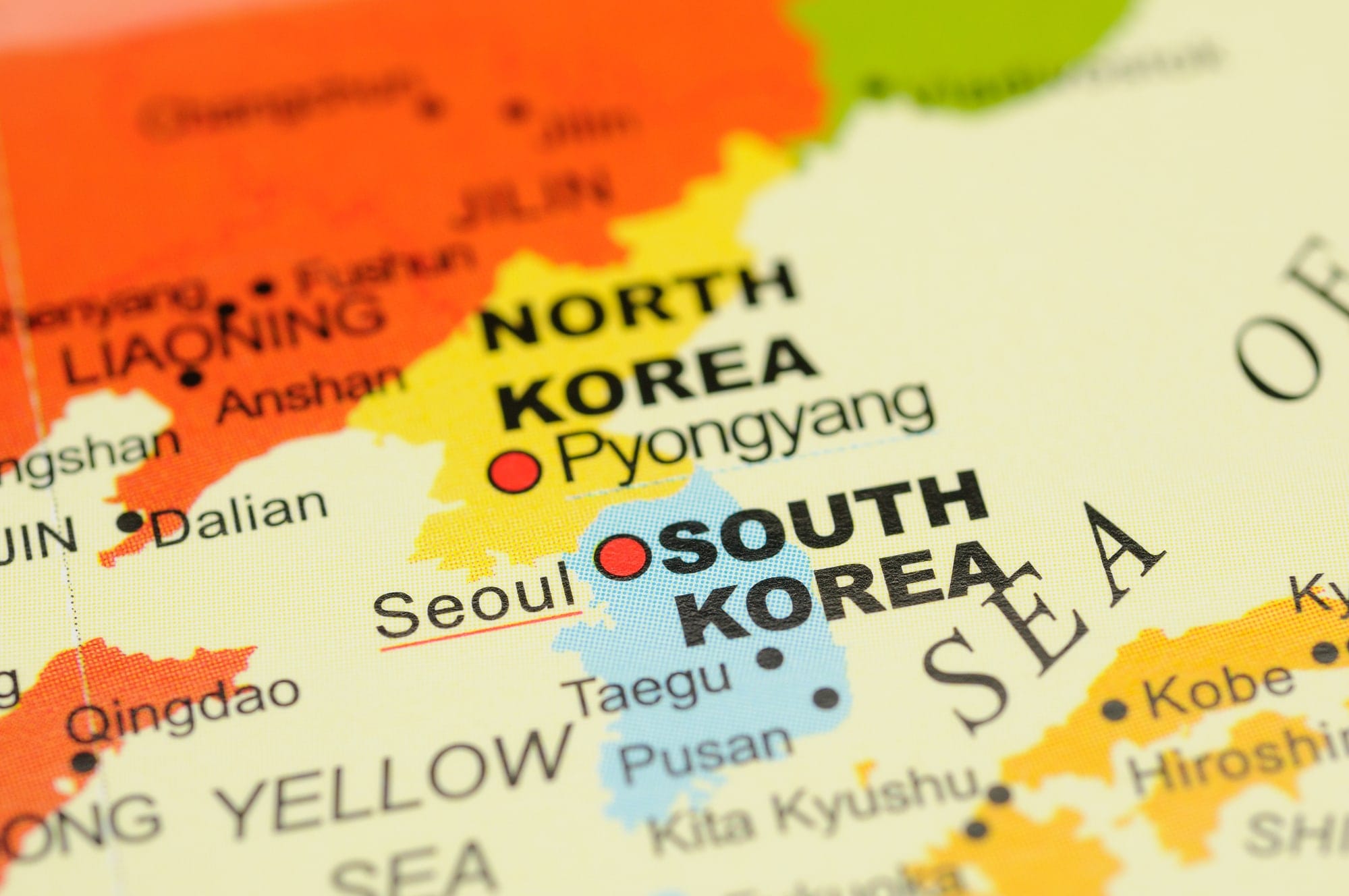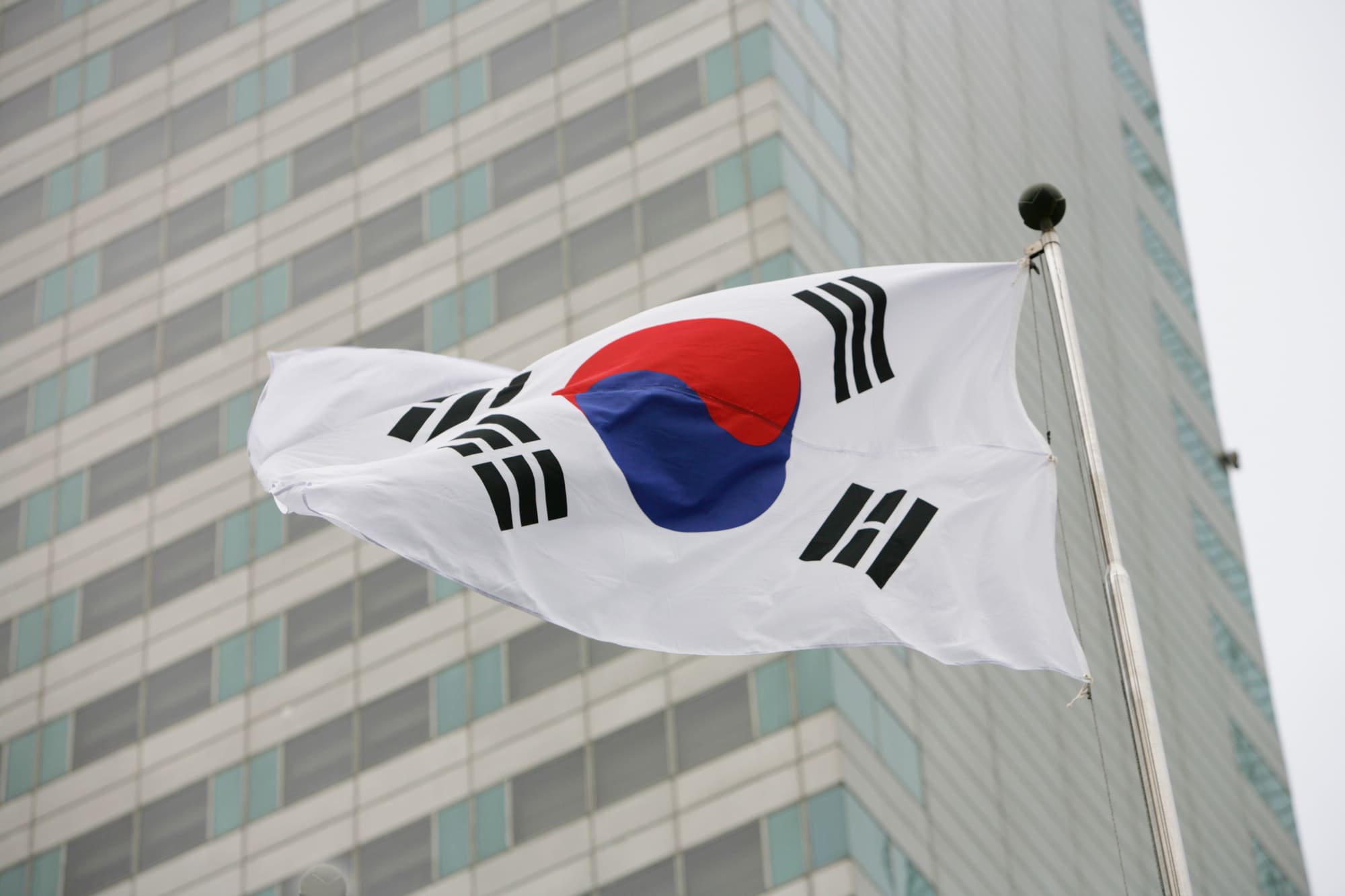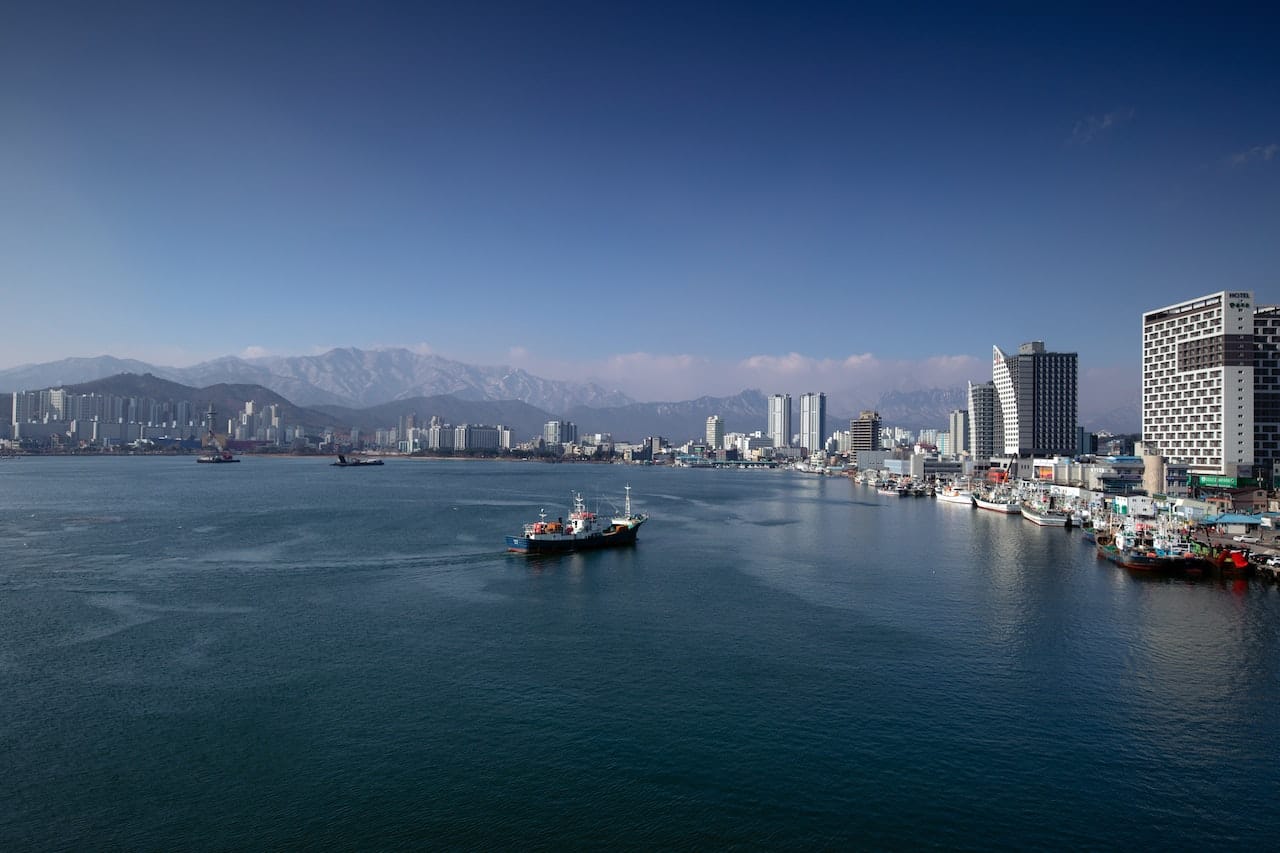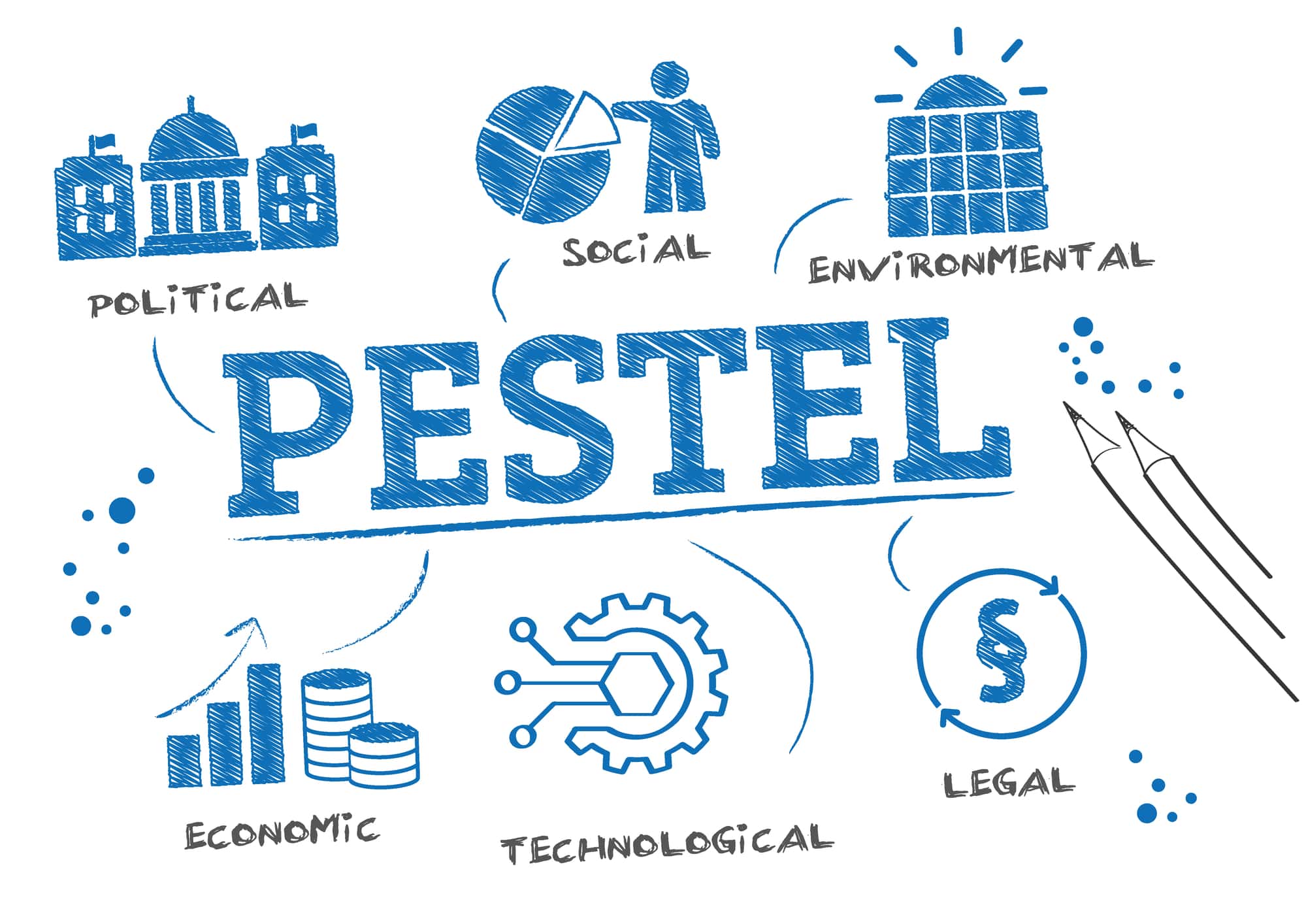Are you curious about South Korea's business environment? Suppose you're considering investing or expanding your business into this dynamic East Asian country. In that case, a PESTLE analysis is a great way to assess the external factors that could impact your success.
South Korea is known for its highly competitive economy, cutting-edge technology, and rich cultural heritage. However, like any country, it also faces challenges and risks that could affect your business.
That is why we have decided to conduct the South Korea PESTLE Analysis. By exploring the political, economic, social, legal, technological, and environmental factors that shape South Korea's business landscape, you'll better understand the opportunities and threats you may encounter.
So, let's dive into the South Korean business and explore the key drivers that could shape your company's future in this exciting market. Also, make sure not to miss out on our SWOT analysis of South Korea we conducted recently.

South Korea has a rich and complex history dating back thousands of years. Over the centuries, it has been shaped by wars, invasions, political turmoil, and rapid modernisation.
Over time, various kingdoms and states emerged in the region, including Gojoseon. This first Korean kingdom is said to have been founded in 2333 BCE by the legendary figure Dangun.
In the following centuries, three Kingdoms of Korea, Goguryeo, Baekje, and Silla, emerged and vied for control of the peninsula. Finally, in 668 CE, Silla defeated the other two kingdoms and established a unified kingdom.
Under the Silla dynasty, the arts, culture, and Buddhism flourished, and the kingdom became known for its gold and silver crafts. However, in the 10th century, Silla was weakened by internal strife and foreign invasions.
In 1392, the Joseon dynasty was established, ruling the peninsula for over 500 years. Confucianism became the dominant philosophy during this time, and the country underwent cultural and intellectual development.
However, the Joseon dynasty also faced several challenges, including invasions by Japan and China and internal strife and corruption. In the late 19th century, Korea was forced to open its doors to foreign powers, leading to increased interference and control by foreign governments.
In 1910, Japan annexed Korea and began a brutal occupation period that lasted 35 years. During this time, the Japanese government suppressed Korean culture and language, forced Koreans to adopt Japanese names and customs, and forced many Koreans to work as laborers or soldiers.
After Japan got defeated in World War II, Korea got divided into two parts; the Soviet Union occupied the north, and the United States occupied the south. Then, in 1950, North Korea invaded South Korea, sparking a brutal conflict that lasted for three years.
The war ended in a deadlock, with the two Koreas remaining divided. South Korea underwent rapid economic development, known as the "Miracle on the Han River." It became a major player in the global economy.
Today, South Korea is a modern, democratic nation with a thriving economy, a rich cultural heritage, and a reputation as a global leader in technology and innovation.
Now that we have shed light on the history of South Korea, let's proceed further and discuss what PESTLE analysis is.
PESTLE analysis is a technique businesses use to identify how various external factors impact businesses. In today's PEST analysis, we will discuss how different external factors in the South Korean economy impact businesses that operate in South Korea.

Political Factors That Affect South Korea
Political factors play a crucial role in shaping the business environment in South Korea. As a democratic country, South Korea's stable political system promotes transparency, accountability, and fair competition.
However, several political factors can still affect businesses operating in the country.
The South Korean government has initiated various policies to promote economic growth and support local businesses. These policies include tax incentives, subsidies, and regulations to protect domestic industries.
However, the government's policies can also change quickly, and businesses must be prepared to adapt.
Besides government policies, political stability is another factor that impacts businesses. Although South Korea is a democratic country with a stable political system, it has also experienced periods of political instability.
In the past, there have been protests and demonstrations against government policies. Businesses must be aware of these events and their potential impact on operations.
Moreover, South Korea has signed numerous trade agreements with other countries, including the United States, the European Union, and China. These agreements can significantly impact businesses operating in South Korea, as they can affect tariffs, trade barriers, and other regulatory issues.

Economic Factors That Affect South Korea
South Korea is one of the world's largest and fastest-growing economies, driven by a combination of factors, including government policies, technological innovation, and a highly skilled workforce.
However, several economic factors can affect businesses operating in the country.
Foreign investment has played a crucial role in South Korea's economic growth, with many multinational companies investing.
In recent years, South Korea has attracted significant foreign investment in the technology, automotive, and retail sectors.
However, with the global economic landscape rapidly changing, businesses need to stay informed and adaptable to maintain their competitiveness.
Another economic factor that impacts businesses in South Korea is the fluctuations in South Korea's exchange rate. This is because South Korea's currency, the Korean won, is subject to global foreign exchange market fluctuations.
The government has implemented measures to stabilize the currency and promote economic stability. However, businesses must still monitor exchange rates and adjust their strategies accordingly.
Businesses need to be aware of these fluctuations and take steps to mitigate their impact on their operations.
Moreover, inflation can be a concern in South Korea, with consumer prices increasing steadily. Therefore, businesses must factor in inflation when setting prices and planning their financial strategies.
The government monitors inflation closely and implements monetary policies to control it. However, businesses still need to stay vigilant and adjust their strategies accordingly.

Social Factors That Affect South Korea
Various social factors, including culture, demographics, education, and lifestyle have influenced the country's economic development.
Understanding these social factors can help businesses to develop effective strategies and succeed in the South Korean market.
Culture is one of the most critical social factors affecting businesses in South Korea. Korean culture is deeply rooted in Confucianism, which emphasizes the importance of hierarchy, respect for authority, and loyalty.
Relationships and trust are essential in business, and decision-making often involves group consensus. Therefore, businesses that do not understand and respect these cultural norms may struggle to build relationships with Korean partners and customers, hindering their success in the market.
Demographics also play a crucial role in shaping the business environment in South Korea. The country has an aging population with a low birth rate and a high life expectancy.
This demographic shift has increased demand for healthcare services and products targeted at older consumers. Additionally, South Korea has a highly educated population focusing on STEM fields, resulting in a highly skilled and competitive workforce.
As a result, businesses that invest in research and development and prioritize employee training and development may have a competitive advantage in the South Korean market.
Education is another social factor that affects businesses in South Korea.
The country places a high value on education, strongly emphasizing STEM fields.
This focus on education has resulted in a highly skilled workforce that is competitive in the global marketplace.
Businesses prioritizing education and training for their employees are more likely to succeed in South Korea, as they can tap into the country's pool of talented workers.

Technological Factors That Affect South Korea
South Korea is a country known for its technological advancement and innovation. The country has produced some of the world's largest tech companies, including Samsung, LG, and SK Hynix.
Technological factors play a critical role in shaping the business environment in South Korea. This section will discuss the technological factors that affect businesses in South Korea.
One of the most significant technological factors affecting businesses in South Korea is the country's advanced mobile technology. South Korea has a high smartphone penetration rate, with many consumers using their smartphones to purchase and conduct research.
Businesses that can create mobile-friendly websites and applications that cater to the needs of smartphone users are more likely to attain success in the South Korean market.
Another technological factor that affects businesses in South Korea is the country's high-speed internet infrastructure. South Korea has some of the fastest internet speeds in the world, with the widespread availability of high-speed broadband internet.
This infrastructure has enabled the growth of e-commerce and online businesses in the country. Therefore, businesses leveraging this technology will likely succeed in the South Korean market.
Legal Factors That Affect South Korea
The legal factors that impact businesses in South Korea include the country's labor laws, intellectual property laws, competition laws, and regulations governing foreign investment. This section will discuss the legal factors that affect businesses in South Korea.
Competition laws are a critical legal factor that affects businesses in South Korea. The country has strict competition laws prohibiting anti-competitive practices, including price fixing, market allocation, and bid rigging.
Businesses that engage in these practices risk legal penalties and reputational damage, which can impact their success in the South Korean market.
Besides that, South Korea has strict labor laws that govern employment practices, including working hours, wages, and benefits. Businesses operating in South Korea must comply with these labor laws to avoid legal penalties and reputational damage.
The country's labor laws also protect employees, which can impact businesses' hiring and retention practices. Moreover, regulations governing foreign investment are another legal factor affecting South Korea's businesses.
The country has regulations governing foreign investment, including restrictions on foreign ownership and control of businesses operating in certain industries. Businesses must comply with these regulations to avoid legal penalties and reputational damage.

Environmental Factors That Affect South Korea
Environmental factors have become increasingly important in shaping the business environment in South Korea.
As a highly industrialized country, South Korea faces significant environmental challenges, including air and water pollution, waste management, and climate change.
Air pollution is an important environmental factor affecting businesses in South Korea. The country has some of the highest levels of air pollution in the world, which can impact the health and well-being of employees and consumers.
Businesses that adopt sustainable practices to reduce air pollution by investing in renewable energy or reducing emissions from manufacturing processes will succeed in the South Korean economy.
Water pollution is another critical environmental factor that affects businesses in South Korea. The country has faced significant challenges with water pollution, including contamination from industrial chemicals and agricultural runoff.
Businesses that can develop sustainable practices to reduce water pollution, such as investing in wastewater treatment or reducing the use of harmful chemicals in manufacturing processes, are more likely to succeed in the South Korean market.
Waste management is also a significant environmental factor affecting South Korea's businesses. The country generates significant waste, and the government has implemented strict regulations to govern waste disposal and recycling.
Moreover, climate change is another critical environmental factor affecting South Korea's businesses. The country has experienced significant weather-related events, including typhoons and flooding, that can impact businesses' operations and supply chains.

South Korea PESTLE Analysis: Final Word
South Korea is considered an amazing country for investment since it provides an amazing business environment. Today's South Korea is much different from a few decades ago.
South Korea has seen several wars, political instability, natural disasters, and whatnot.
However, currently, it is one of the ideal countries for investment due to its technological and social infrastructure.
In today's article, we conducted a South Korea PESTLE analysis to analyze what external factors affect businesses operating in South Korea.
Besides knowing what external factors impact businesses in South Korea, you must have learned the PESTEL analysis framework after reading this article.
If you want to know more about the PESTLE analysis technique, do look at some of the PESTLE analysis examples.










